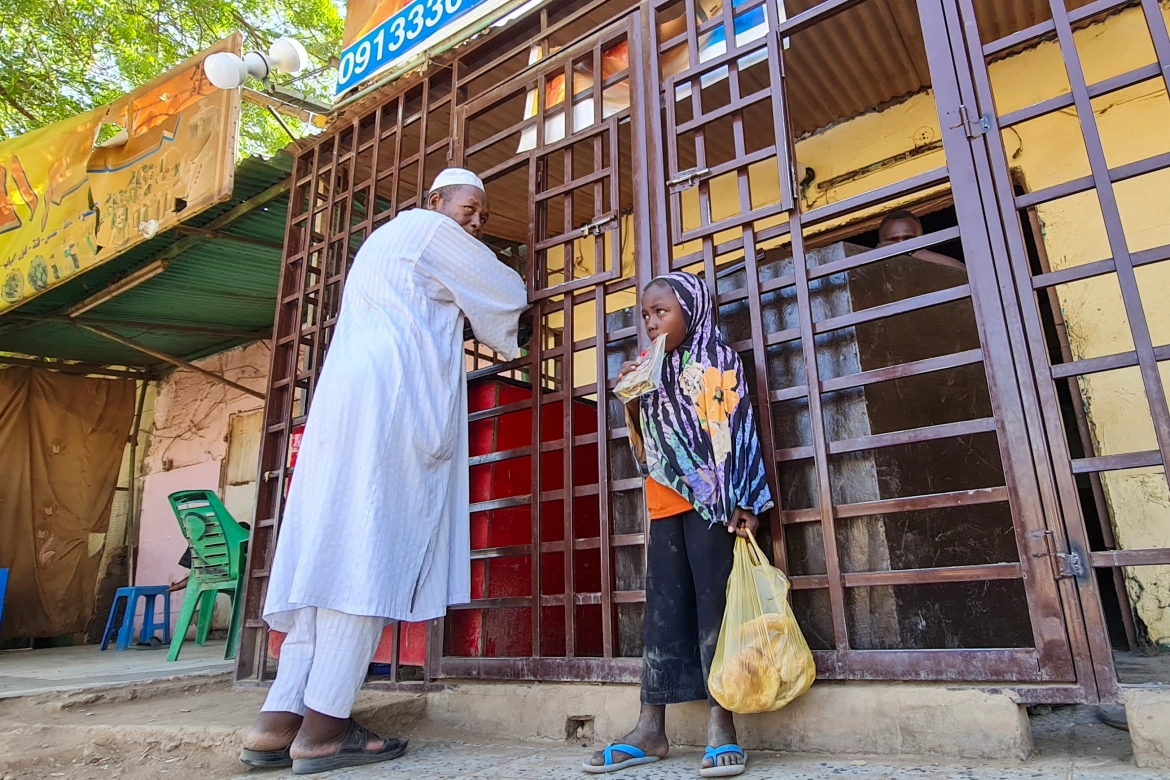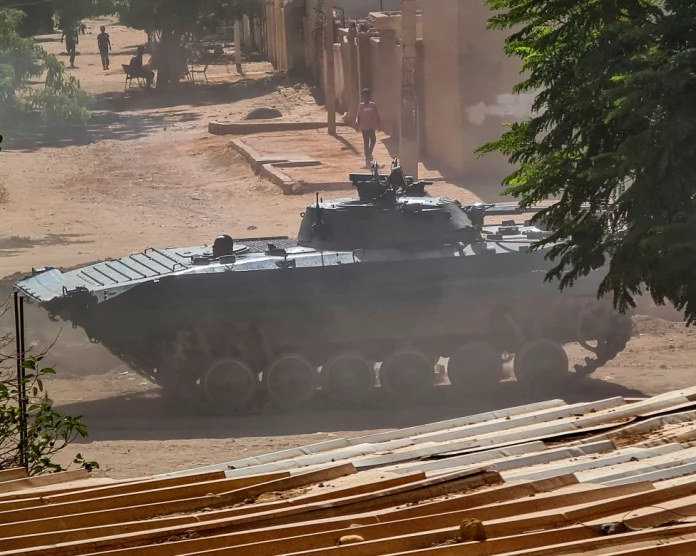Overnight air strikes and clashes have put out hopes for a seven-day truce in Sudan. A peace deal was signed on Saturday to allow life-saving humanitarian aid to flow into the war-torn country. However, witnesses in Sudan’s capital, Khartoum, told multiple news outlets of continued combat over the city and in the streets. Giving the week-long ceasefire a rocky start.
RELATED STORY: Sudan conflict may force 800,000 people to flee
Ongoing fighting
People in Sudan report fighting in northern Khartoum, and air strikes in the east, just hours after the truce was to take effect on Monday. They told the AFP that the smell of smoke lingered after explosions shook the city.
The ongoing fighting has dampened hopes of seeing humanitarian aid enter the country, or allow residents to flee.
Despite previous failed attempts at brokering peace, the US and Saudi Arabia says this time is different.

Peace brokered by U.S and Saudi
Since the start of the conflict on April 15, numerous ceasefire deals have failed to stop the fighting. The recent peace deal includes an internationally supported monitoring mechanism. It also allowed the delivery of humanitarian aid. Saudi Arabia and the United States brokered the deal after talks in the Saudi city of Jeddah. Both the Sudanese army and the rival paramilitary Rapid Support Forces (RSF) signed the deal.
The conflict is between the army, which is led by Sudan’s de facto leader, Abdel Fattah al-Burhan, and the paramilitary Rapid Support Forces led by Mohamed Hamdan Daglo. The war has killed over 100 people, and forced millions to flee their homes.

‘We’re tired of this war’
The latest ceasefire had raised hopes that the seemingly endless war would come to an end. A war that has driven millions from their homes, including over 250,000 people who fled into neighbouring countries.
The UN’s envoy to Sudan, Volker Perthes, reportedly told the United Nations Security Council that “fighting and troop movements” continued even after the peace deal was announced.
RELATED STORY: Helping South Africans in Sudan
People still in Khartoum are reportedly struggling to survive amid looting, scarce supplies of food and water, and a crippled health services.
Safaa Ibrahim, a 35-year-old Khartoum resident, told Reuters that she hopes the new peace deal can end the conflict.
“We’re tired of this war”, she tells Reuters. “We’ve been chased from out homes, and the family has scattered between towns in Sudan and Egypt,” she says. She urges the conflicting leaders to respect “people’s desire for life”.


